Paramount+ - Zorro: a hero reimagined in a tale of nostalgia and modernity
By Mulder, 30 august 2024
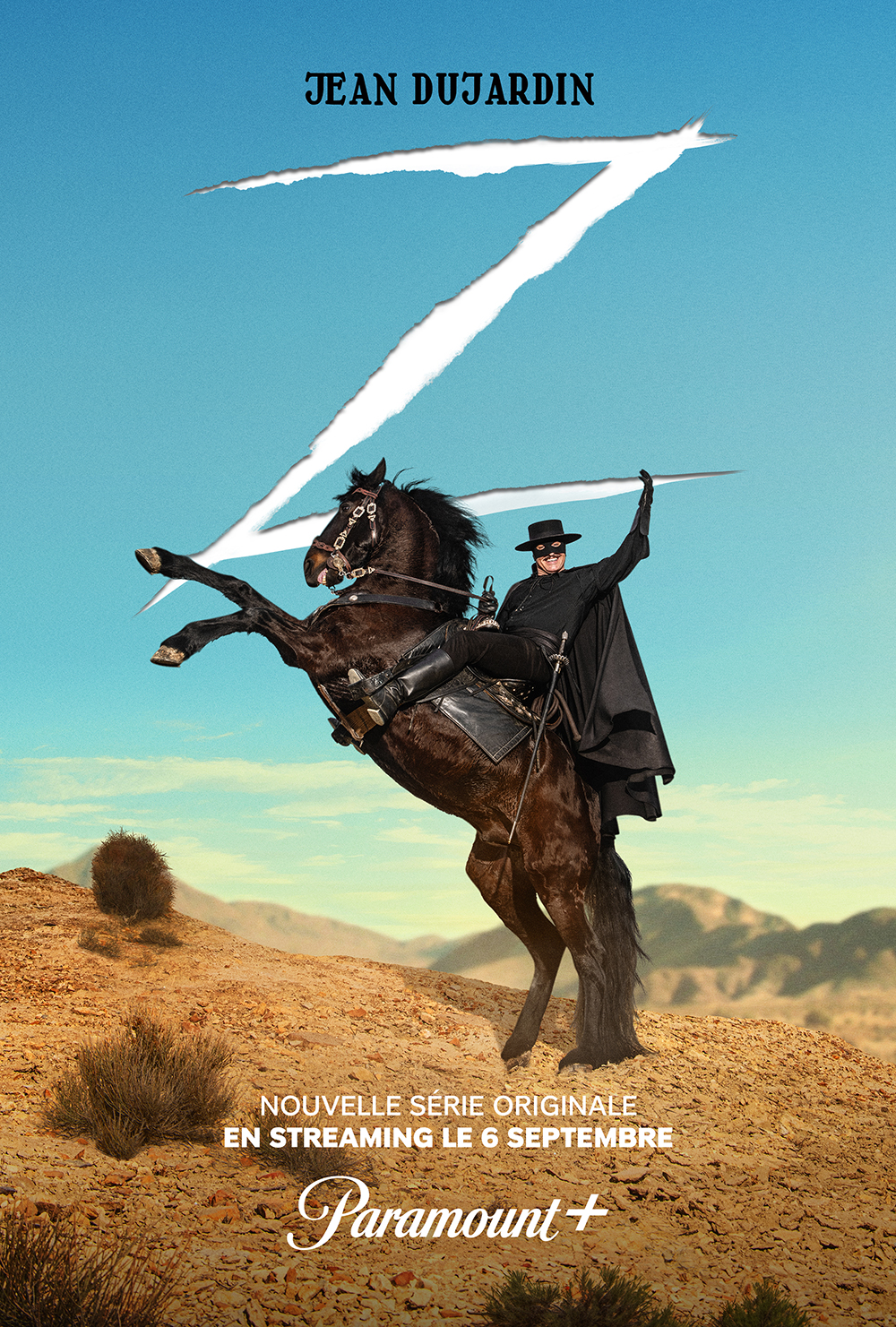
The masked avenger Zorro, a character who has transcended generations, returns to the screen in a new French adaptation starring Jean Dujardin. Premiering on Paramount+ on September 6, 2024, the series is a bold reimagining that brings a blend of humor, nostalgia and modern history to the classic tale. With a cast that also includes Éric Elmosnino, Audrey Dana, André Dussollier and Grégory Gadebois, this version of Zorro promises to captivate long-time fans and newcomers alike.
Set in 1821, in the small town of Los Angeles, now a Mexican province, the series follows Don Diego de la Vega, who inherits the mayoral post from his father, Don Alejandro (played by André Dussollier). Diego's initial hopes of restoring the town's finances are quickly dashed by the corrupt and greedy businessman Don Emmanuel, played with sly malevolence by Éric Elmosnino. As Diego's political powers prove insufficient to fight injustice, and his marriage to Gabriella (Audrey Dana) begins to falter, he is forced to resurrect his alter ego, Zorro, after a twenty-year hiatus.
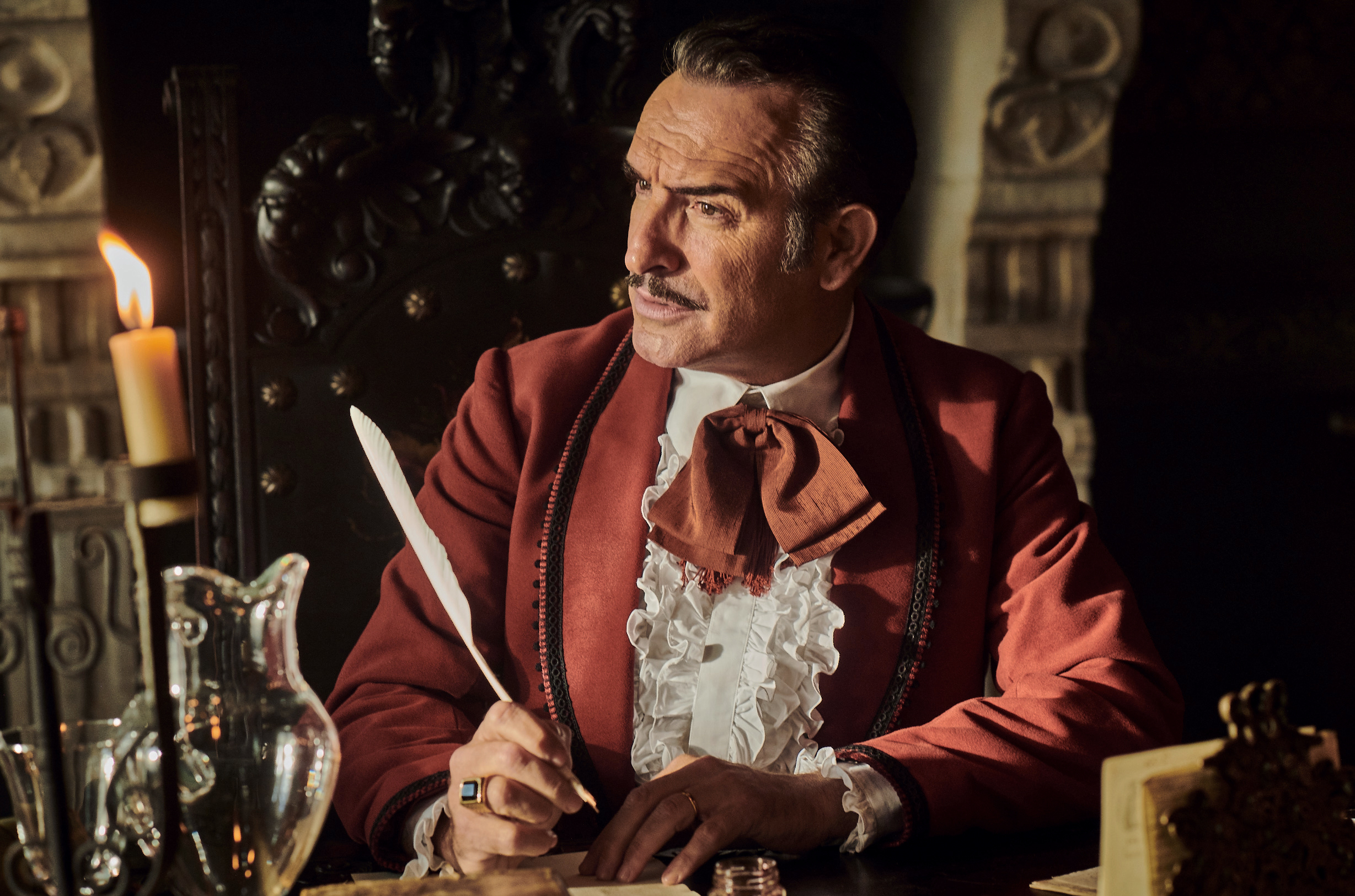
This adaptation of Zorro sets itself apart from its predecessors by not taking itself too seriously. Creators Benjamin Charbit and Noé Debré infuse the series with a comic and somewhat absurd tone, in stark contrast to the more straightforward heroic portrayals of Zorro in the past. This approach makes the character more understandable and more human, while maintaining the cloak-and-dagger action that fans of the genre have come to expect.
Jean Dujardin, a master of comedy known for his roles in OSS 117 and The Artist, brings a unique charm to Don Diego. His Zorro is not the confident, infallible hero of yesteryear, but rather a man caught between his past and present, struggling against his own inadequacies. Jean Dujardin's performance is reminiscent of his early comic roles, blending clumsiness and naiveté in a character that is both endearing and frustrating. The influence of his iconic roles, such as Brice de Nice and OSS 117, is obvious: his characters are often overwhelmed by events, but endearing nonetheless.
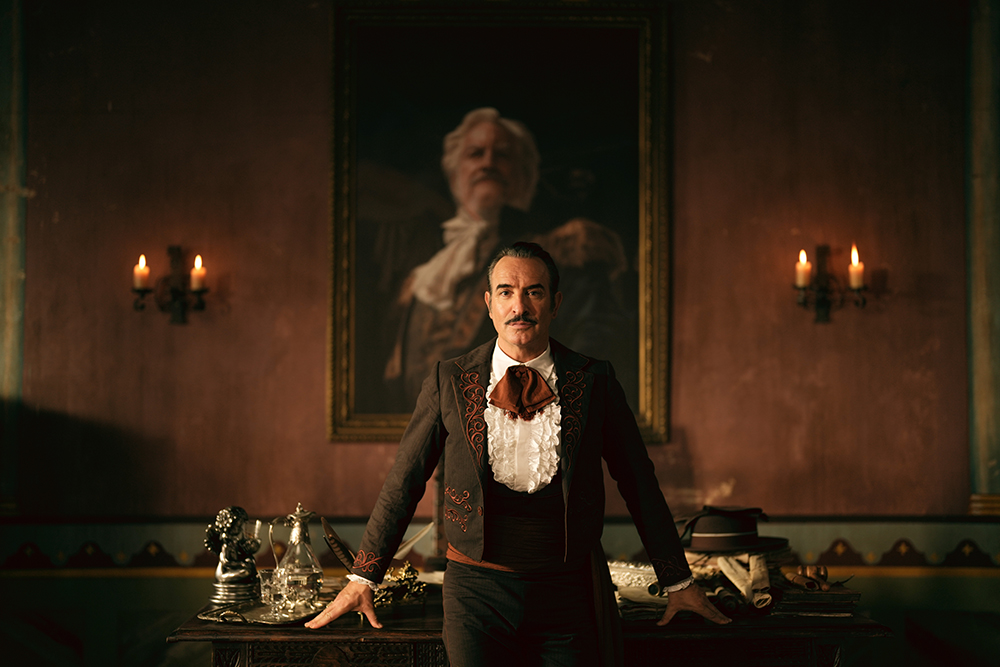
This Zorro is older, perhaps a little out of shape, and certainly rusty when it comes to the heroic feats that made him a legend. The series plays with this idea by showing Don Diego grappling with his dual identity - when he's just Don Diego, he's clumsy and often gets into mischief. But once he wears the mask, he's transformed into a daring, cunning hero. This duality is at the heart of the series, and is the source of much of the humor and drama.
The series relies heavily on humor, often venturing into parody. The humor is sharp, often absurd and sometimes juvenile, which may not appeal to all viewers. The writing draws on the classics of slapstick and commedia dell'arte, blending them with a modern sensibility. The result is a series that doesn't hesitate to poke fun at its own premise and characters.
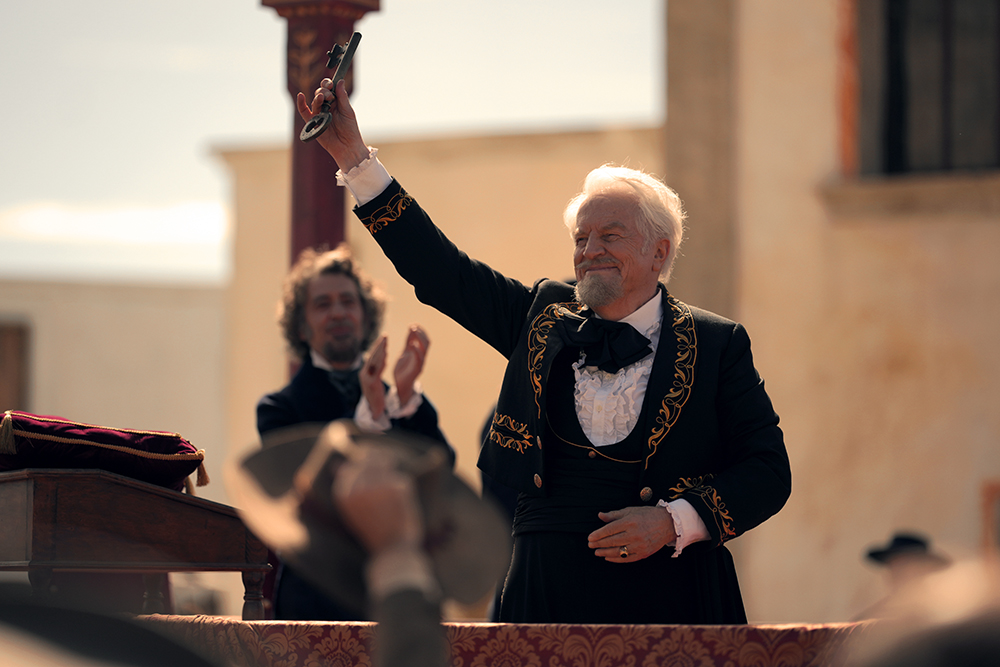
For some, this approach will be refreshing - a welcome break from the often over-serious tones of superhero stories. For others, especially those with a deep affection for the traditional Zorro, this approach may seem disrespectful of the character's heritage. The series walks a fine line between homage and satire, and while it succeeds more often than not, it risks alienating viewers who expect a more serious portrayal.
The secondary cast is a strong point too, with outstanding performances that add layers to the narrative. Éric Elmosnino's Don Emmanuel is a delightfully vile antagonist, whose greed and cunning make him a formidable foe for Diego/Zorro. Grégory Gadebois, in the role of Sergeant Garcia, is also remarkable. His Garcia is not just the bumbling idiot of previous adaptations, but a character of surprising depth, alternating between moments of real menace and unintentional comedy.
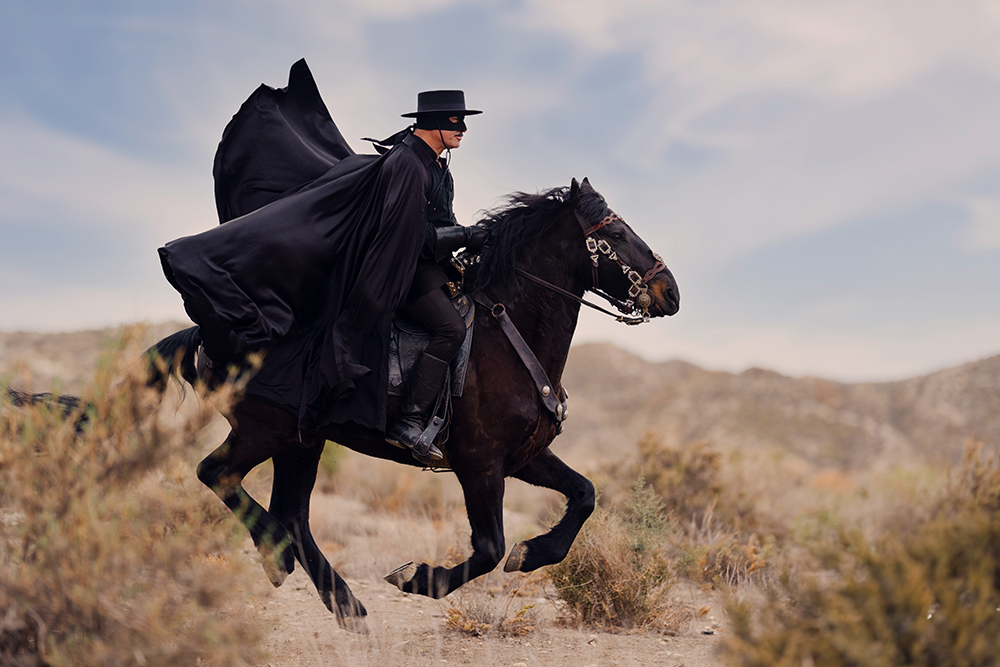
However, the series' focus on Dujardin's Zorro sometimes sidelines secondary characters. For example, Bernardo, played by Salvatore Ficarra, is reduced to a more traditional role of silent sidekick, losing the intelligence and depth he has shown in other adaptations. Audrey Dana's Gabriella is also somewhat underdeveloped, although her dynamic with Jean Dujardin's Don Diego offers some of the series' most heartfelt moments.
Visually, the series is a real success. Shot in the breathtaking landscapes of Spain, the series brings 1821 Los Angeles to life with a blend of grandeur and authenticity. The production design is meticulous, with impressive sets including a recreated Los Angeles city, casino and native villages. These sets not only anchor the series in its historical context, they also add to its epic character.

The action sequences are well choreographed, with swordfights that are both thrilling and playful. Jean Dujardin, though no seasoned swordsman, handles the action scenes with enough flair to be convincing. The series does a good job of balancing these action moments with the slower, more introspective scenes exploring Diego's internal conflicts.
The music deserves a special mention, as it skilfully incorporates themes from previous Zorro adaptations without copying them directly. This creates a sense of continuity and nostalgia while establishing its own identity.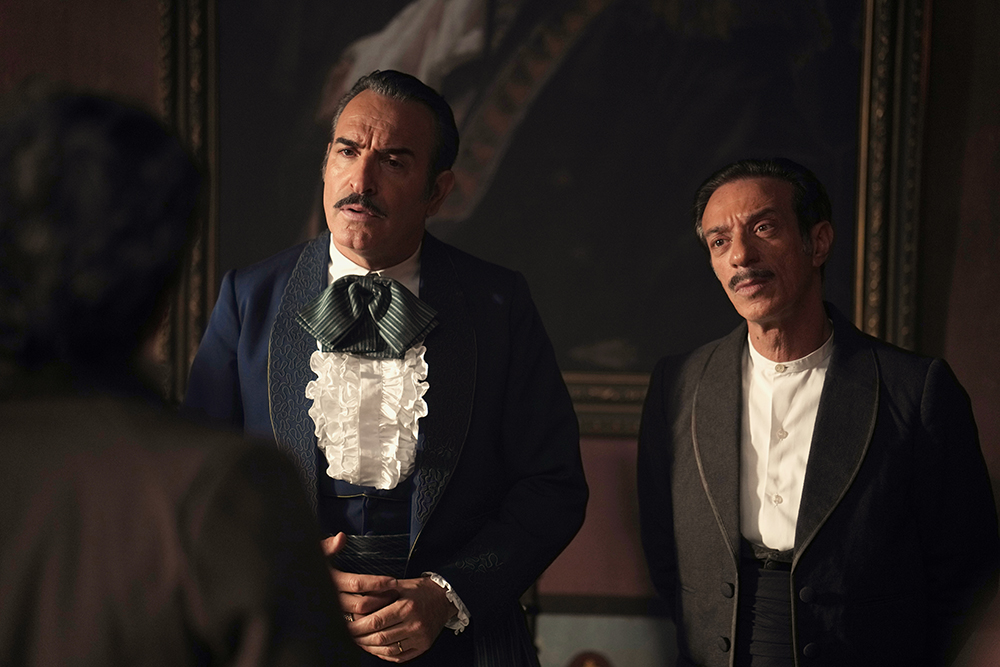
The series starts off strong, with a mix of humor, action and drama that feels fresh and engaging. As the episodes progress, however, the formula begins to show signs of wear. The use of humor, while initially entertaining, can become repetitive, and some jokes begin to lose their impact. The pace also suffers in the latter half of the series, as the novelty of the humorous approach wears off and the narrative struggles to maintain momentum.
One of the central themes, the Diego/Zorro duality, is explored with varying degrees of success. The series does a good job of depicting Diego's internal struggle and the consequences of his double life on his mental health and relationships. However, this depth is often compromised by the series' need to remain light and humorous, resulting in a tonal imbalance that could leave viewers unsure of what the series is trying to achieve.
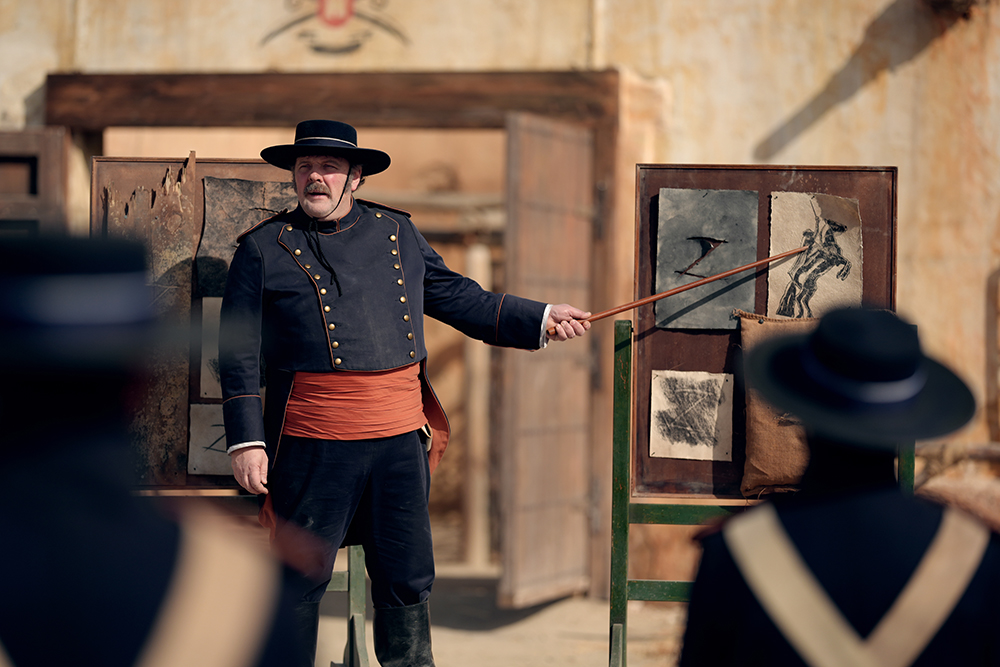
One of the most interesting aspects of this adaptation is its exploration of aging and heroism. This Zorro is not the young, dashing character of legend, but a man in the prime of life, grappling with the realities of old age and loss of relevance. The series subtly poses the question of what it means to be a hero in old age - whether the hero's journey is never really over, or whether it's simply a matter of finding new battles to fight.
This reflection on aging is reflected in Diego's relationships, particularly with his father and wife. The tense father-son dynamic with Don Alejandro, who continues to cast a shadow over Diego even after his death, adds a layer of psychological complexity to the story. Meanwhile, Diego's marriage to Gabriella is put to the test as his secret life as Zorro creates an ever-deepening rift between them.
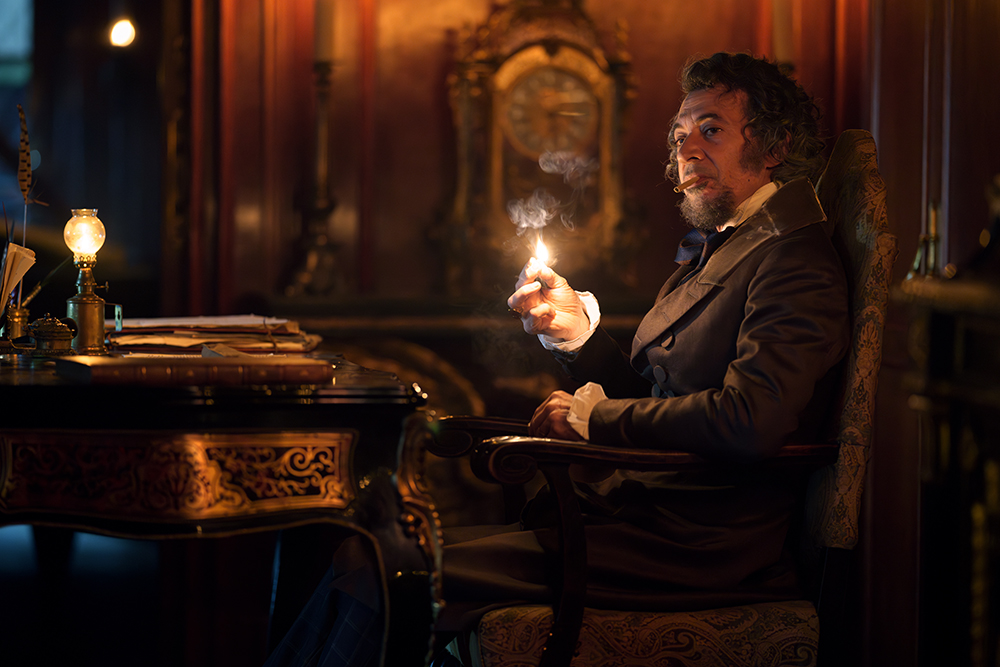
This new French adaptation of Zorro is an ambitious and often successful attempt to bring a beloved character back to life. Jean Dujardin's performance is a major asset, offering a Zorro both humorous and flawed, a man as entertaining in his failures as in his successes. The visual appeal of the series, combined with witty writing and first-rate acting, makes for a captivating film, even if it sometimes stumbles under the weight of its own ambitions.
For Zorro fans, this series offers a fresh perspective that honors the character's heritage while daring to take him in new directions. However, its heavy reliance on humor and parody may not appeal to everyone, especially those who prefer a more traditional, serious portrayal of the masked avenger. Whatever the case, this Zorro is a product of its time - a reflection of modern sensibilities wrapped in the timeless appeal of adventure and heroism. Whether you're here for nostalgia, action or simply to see Jean Dujardin in cape and mask, this series promises a unique and entertaining journey through the legend of Zorro.
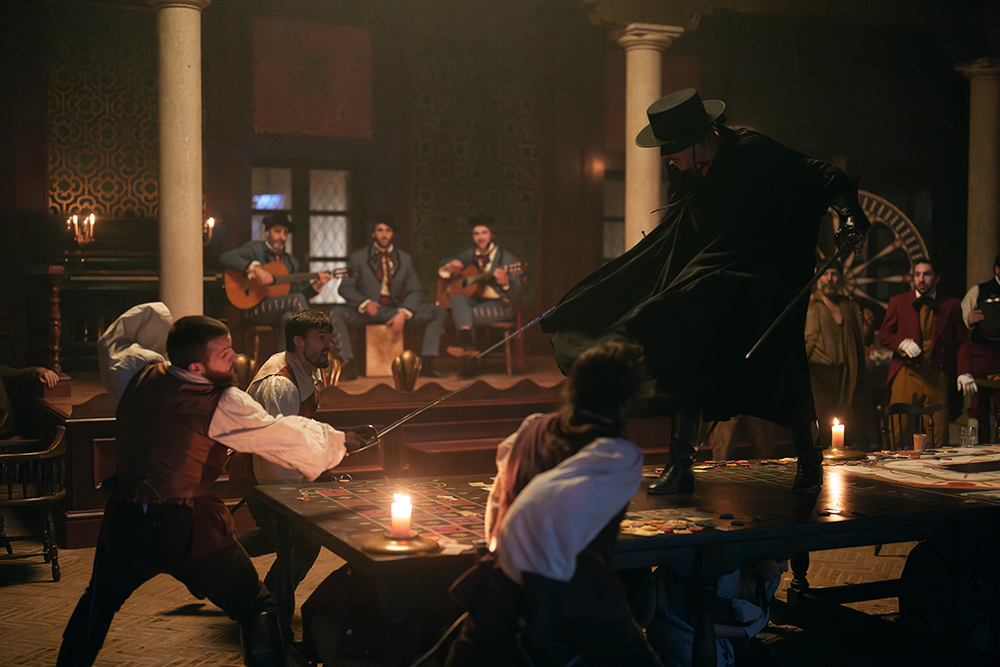
Synopsis:
In 1821, Don Diego de la Vega becomes mayor of his beloved city of Los Angeles, which he intends to make prosper. However, the municipality is facing financial problems due to the greed of a local businessman, Don Emmanuel, against whom the mayor's powers prove insufficient to fight injustice. Diego hasn't called on his double Zorro in 20 years. But in the name of the common good, he has no choice but to pull out his mask and sword. Diego soon finds it difficult to reconcile his dual identity as Zorro and mayor, and this puts a strain on his marriage to Gabriella, who is unaware of his secret. Can Diego save his marriage and his sanity in the midst of chaos?
Zorro
Created by Benjamin Charbit, Noé Debré
Director: Émilie Noblet and Jean-Baptiste Saurel
Script: by Benjamin Charbit and Noé Debré
Production: Marc Dujardin
With Jean Dujardin, Grégory Gadebois, Salvatore Ficarra, André Dussollier, Audrey Dana , Éric Elmosnino, Julien Paschal, Jean-Benoît Ugeux, Rafael Valle
Production company: France Télévisions, Panache Productions, Collectif 64, The Alliance, RTL TVI, Wallimage, Bien sûr Productions, Paramount+.
Distribution: Paramount+, France tv distribution
Original release September 6, 2024
Broadcast : Paramount+, France 2
Running time: 40 minutes
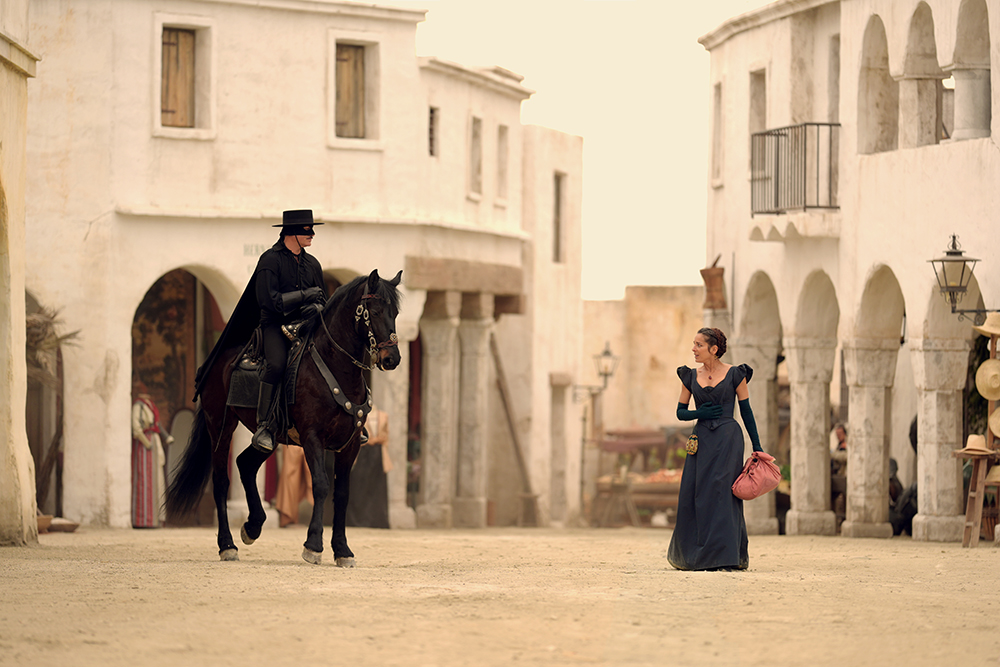
Photos : Copyright Paramount+ / France Télévision

